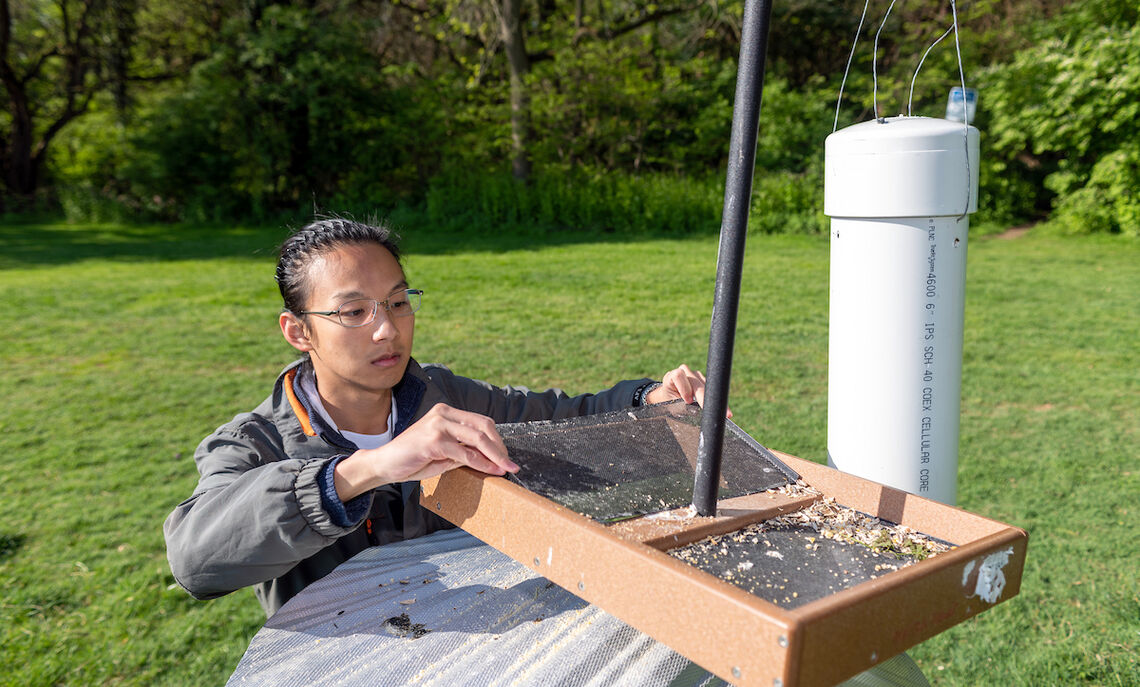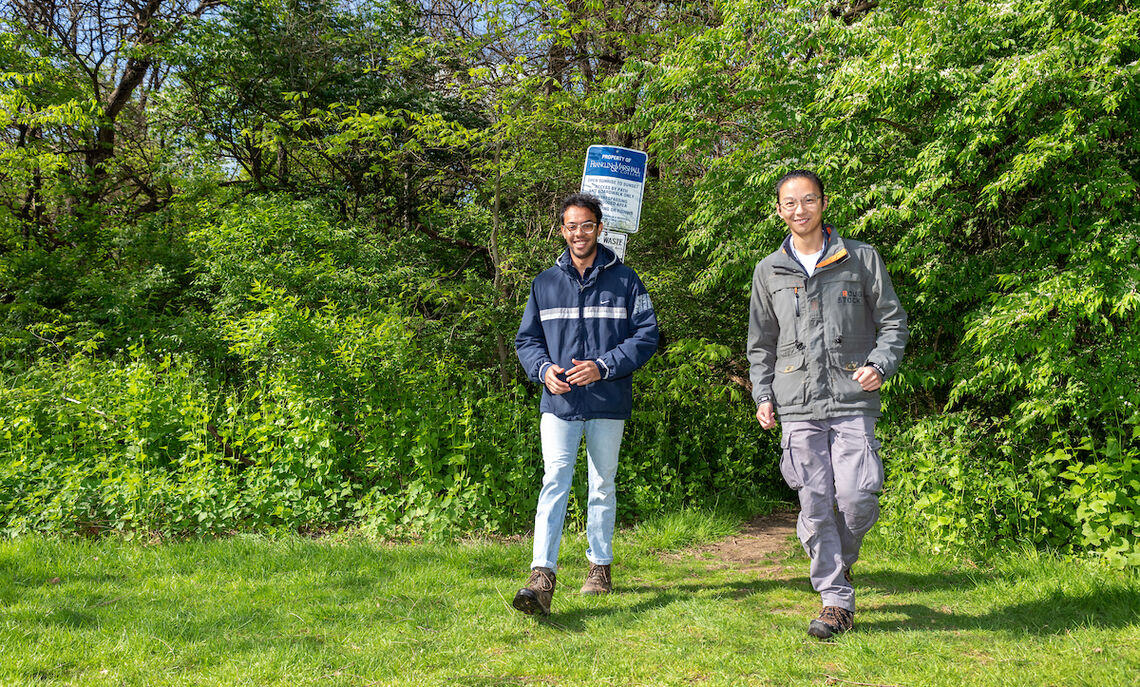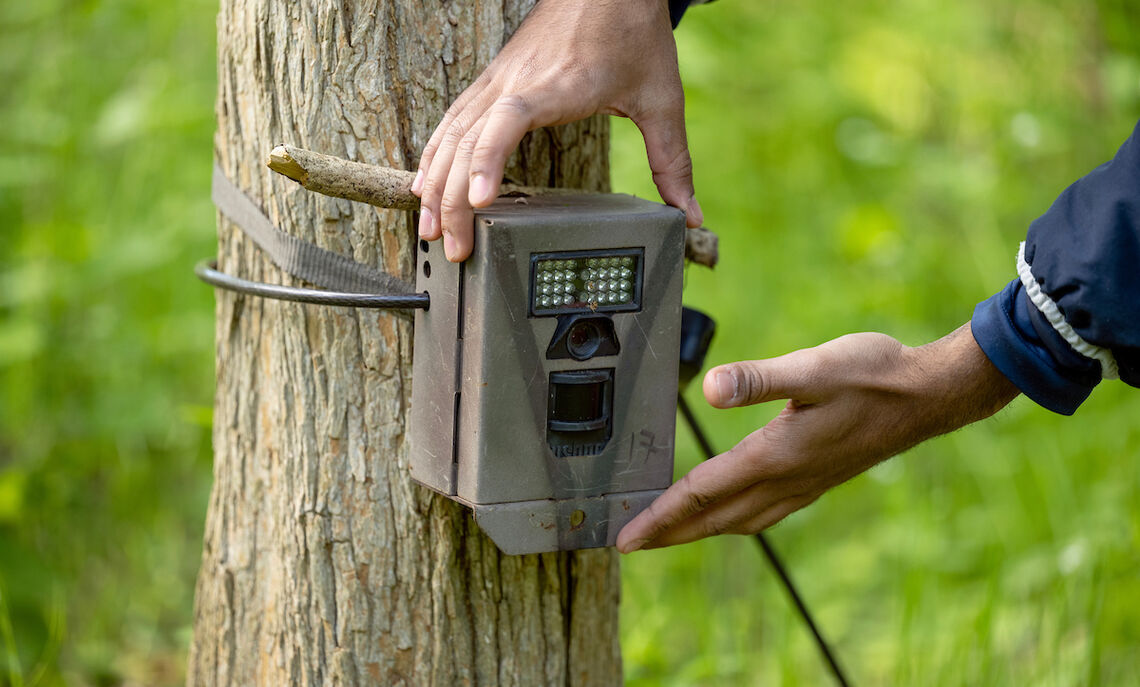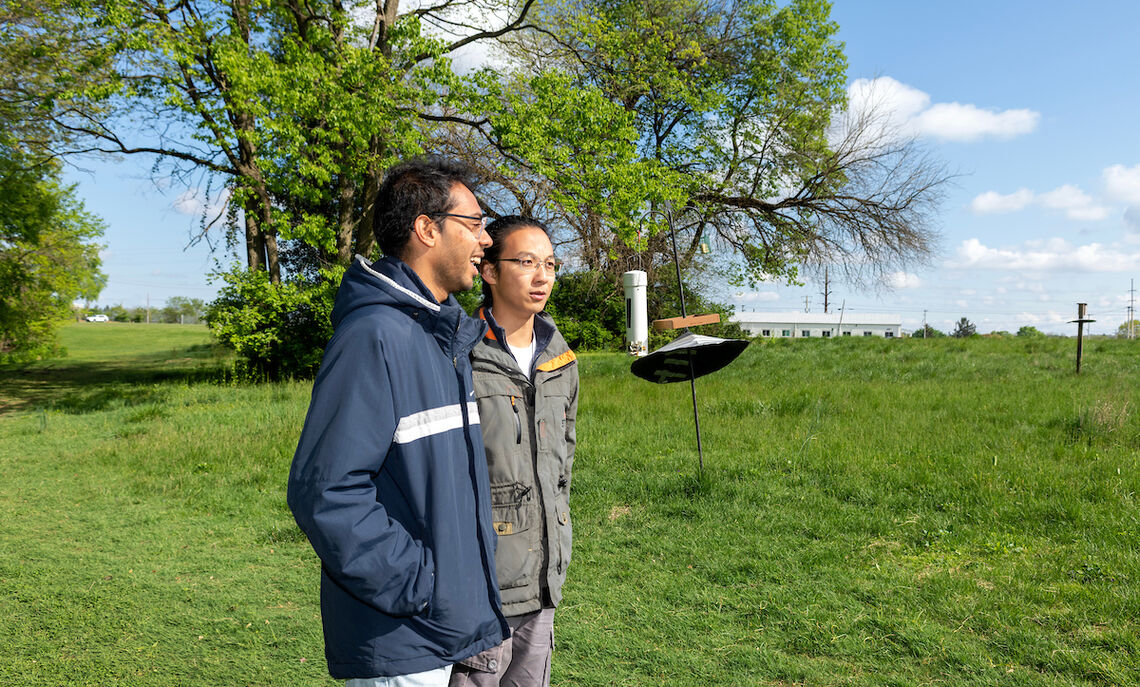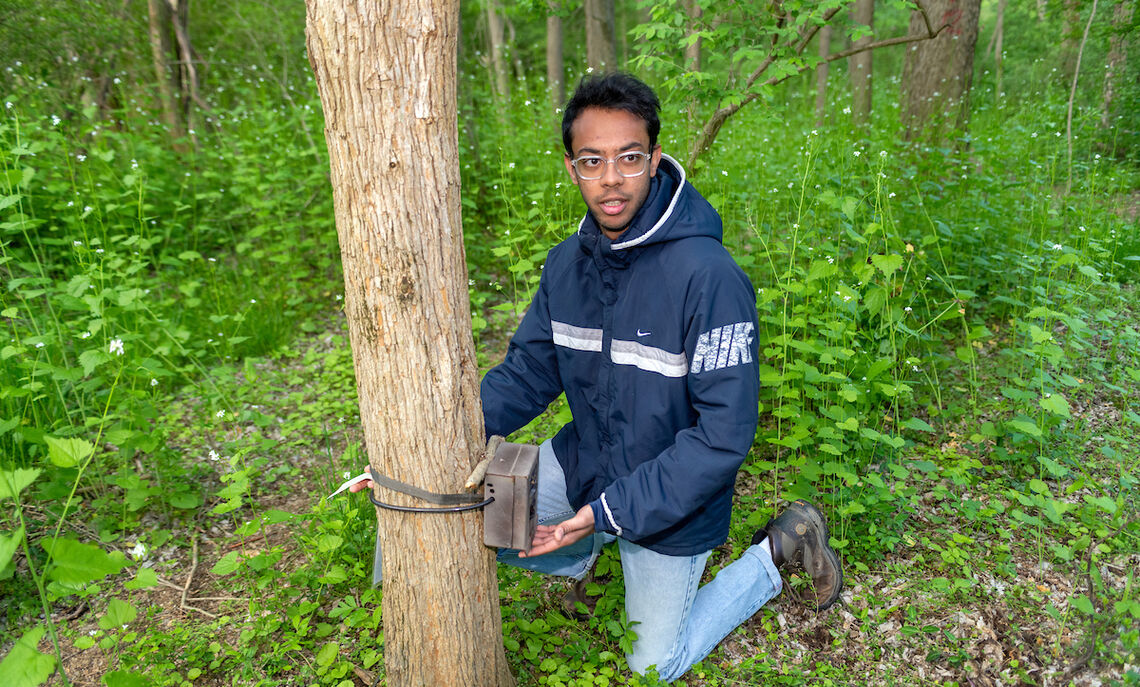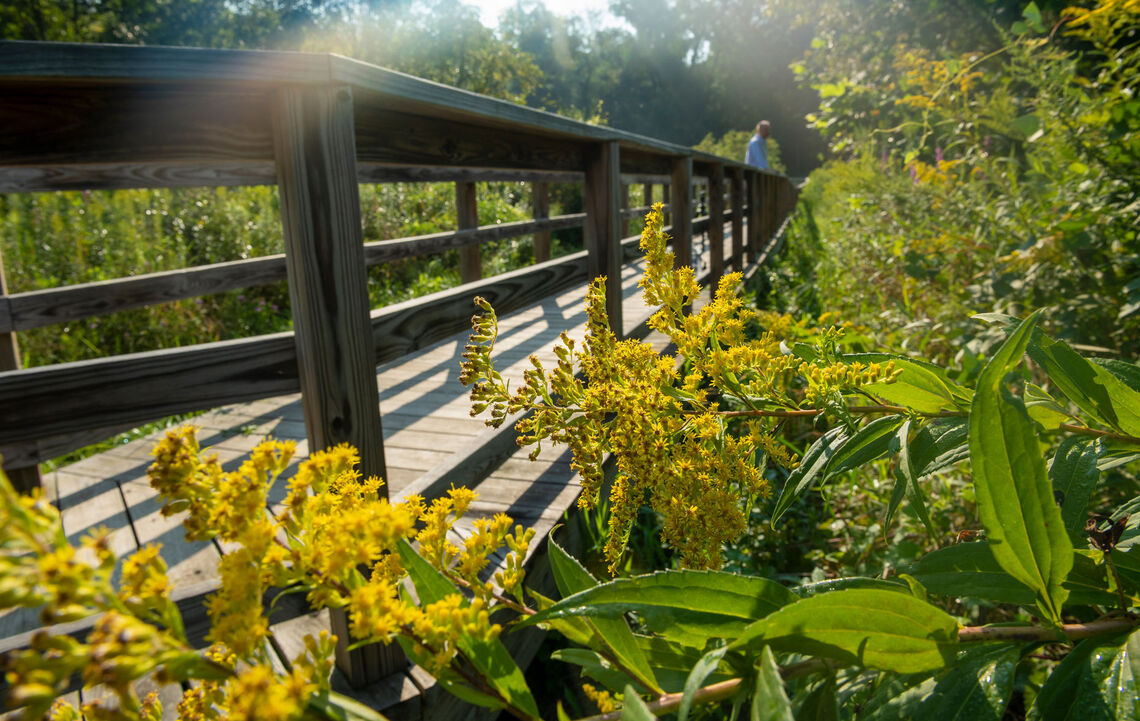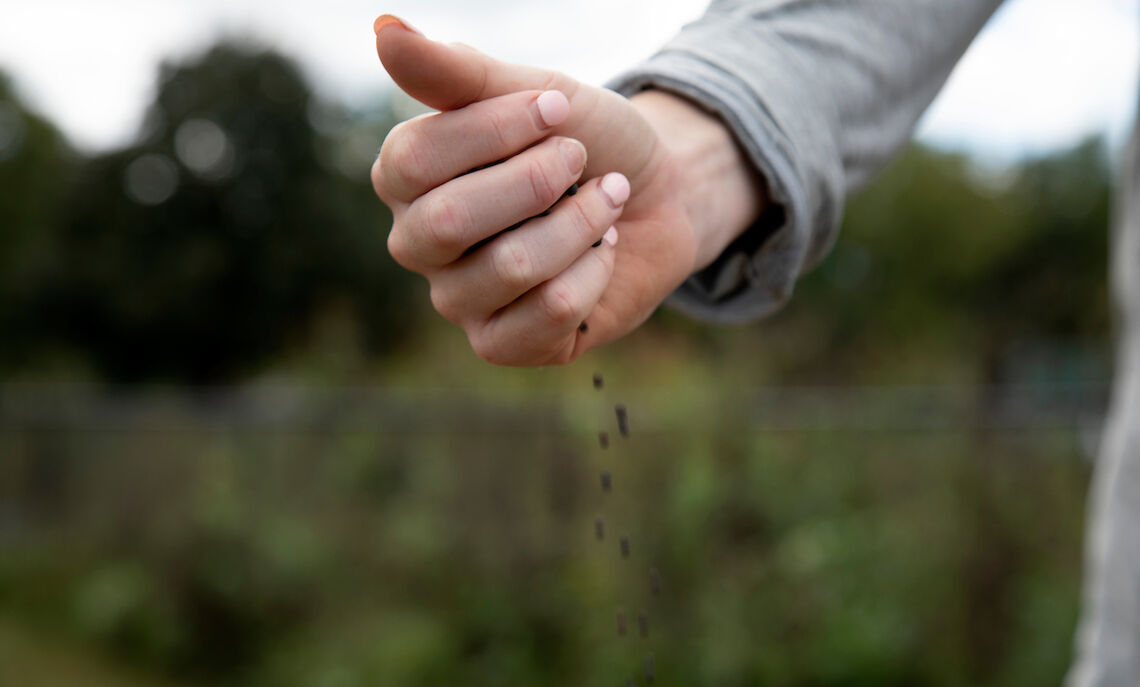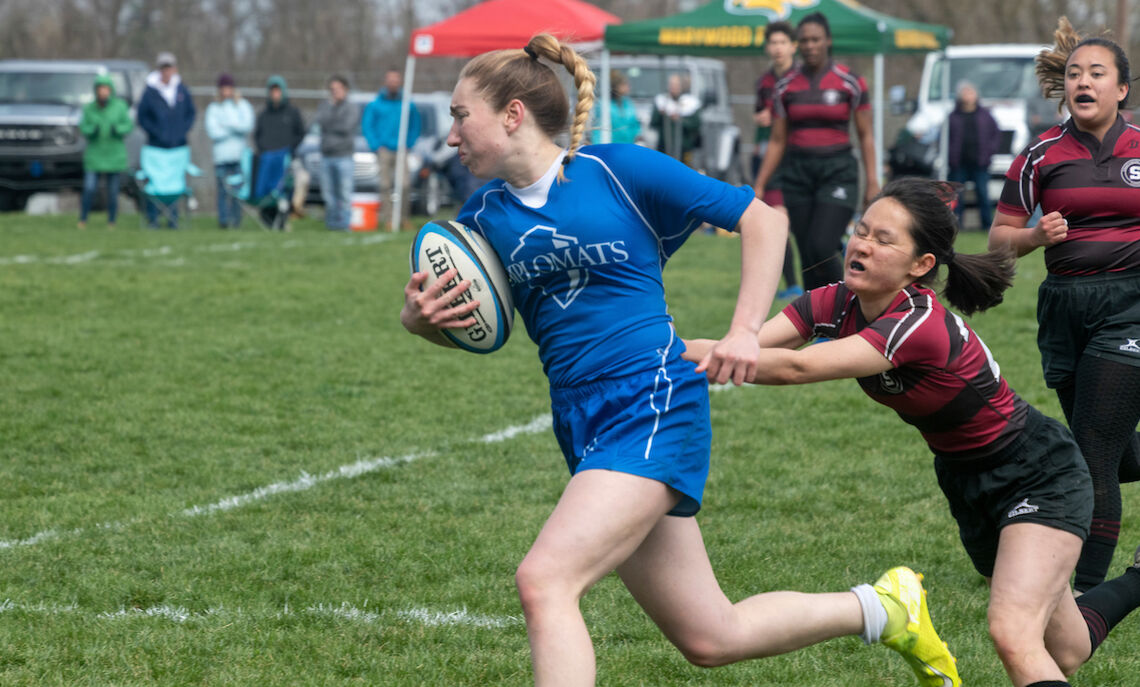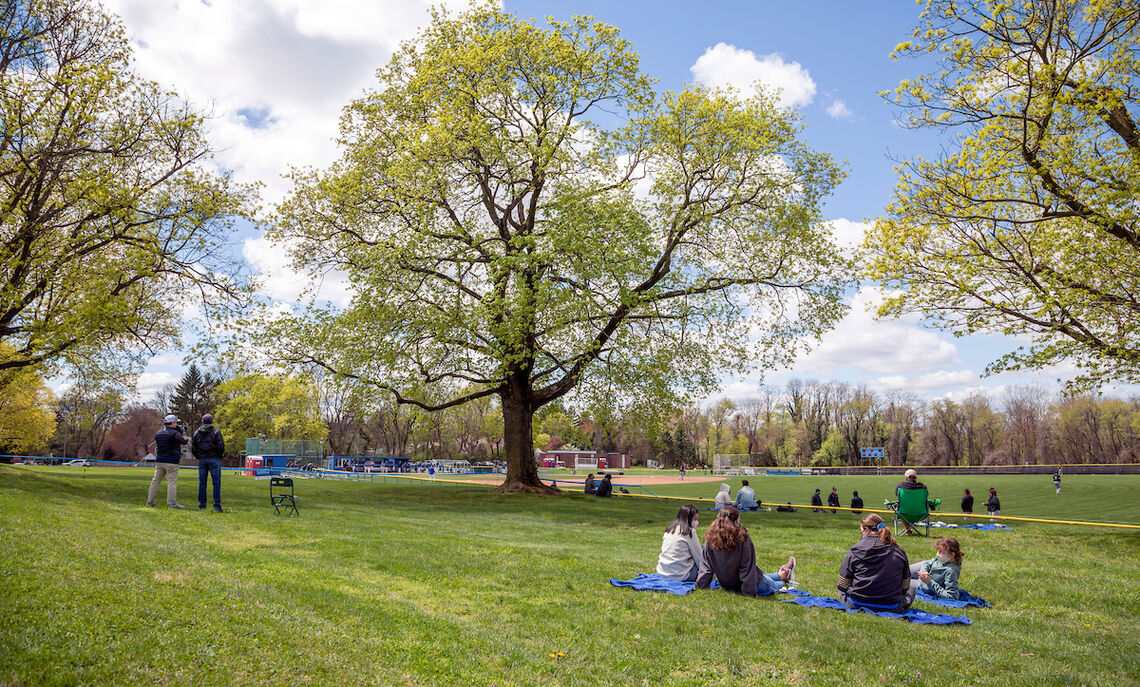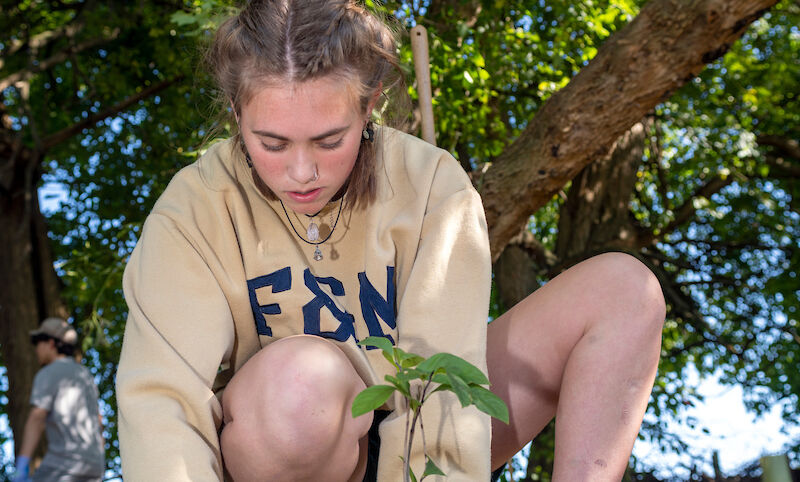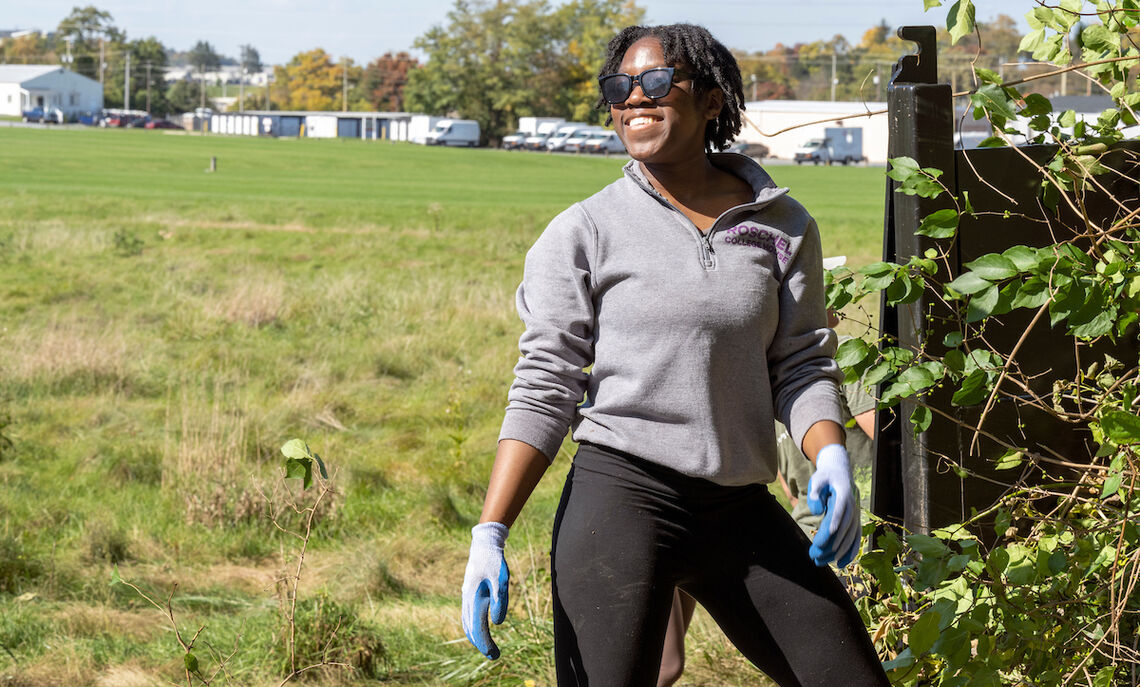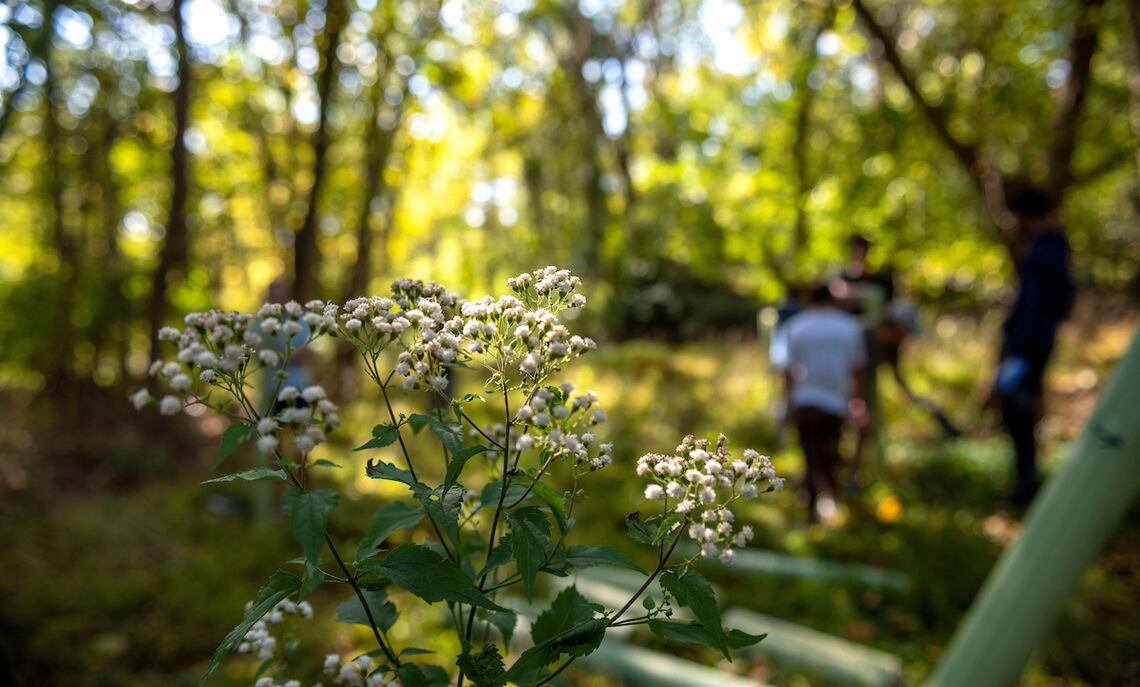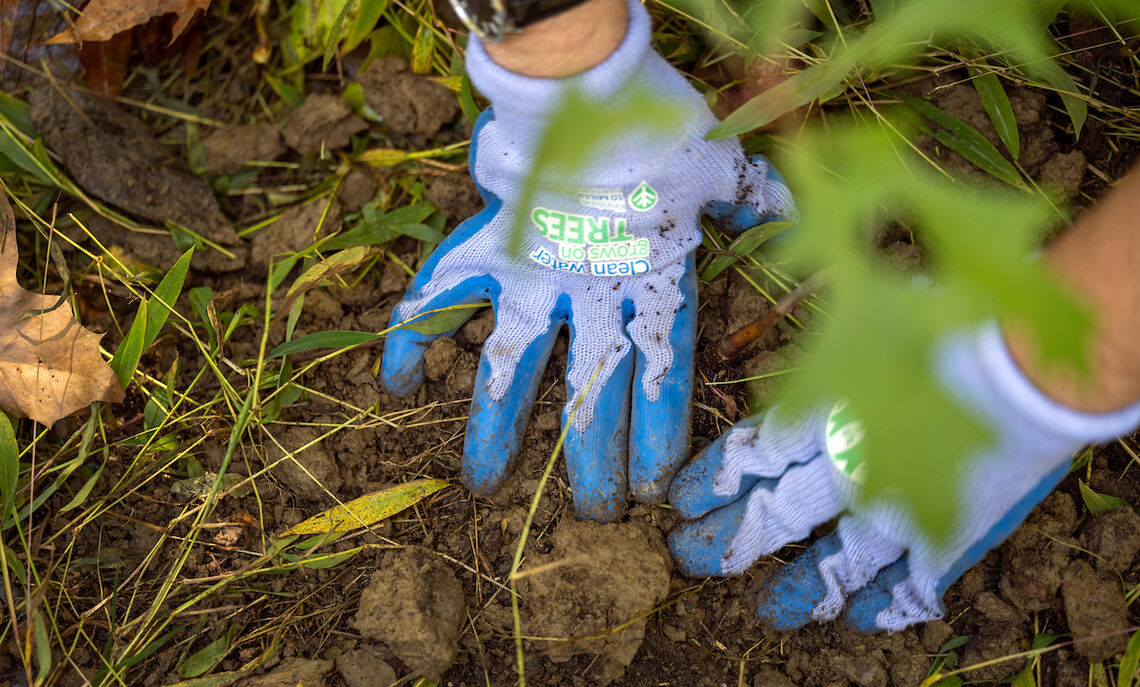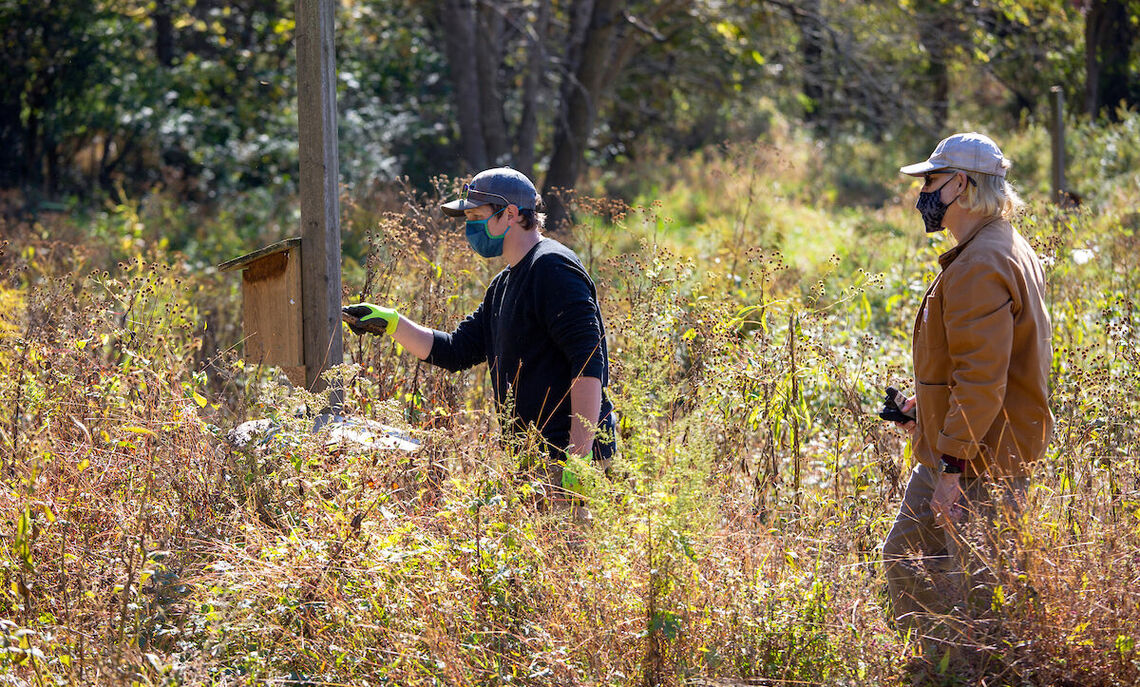F&M Stories
A Morning at Spalding Conservancy
Take a stroll through Franklin & Marshall's Spalding Conservancy on any given day, and you might just find yourself in the middle of a student research project.
The 54-acre property is home to flora, fauna and countless discoveries.
On a crisp morning during reading days, William Li '23 refilled bird feeders at Baker Campus, a wide swath of green space abutting the Spalding woodlands.
"Last year, I started a survey on biodiversity and Baker Campus," said Li, an animal behavior major and Russian studies minor from Hong Kong.
"Over time, the birds will form their territories along the woods' edge next to the feeder," he said.
Li has tracked woodpeckers, juncos and a variety of sparrows. His research is under the tutelage of Professor Dan Ardia, Charles A. Dana Professor of Biology and associate dean of the faculty.
Both Spalding and Baker's proximity to campus appeals to biology and earth and environment majors, nature aficionados and even stargazers (the land is home to the Grundy Observatory, Lancaster County's first observatory). If you spot a trail camera among Spalding's winding paths, it's one of a dozen used to better understand how recreation impacts wildlife.
Spalding and Baker were not the only unique spaces that Li navigated during his time at F&M.
"I lived in Amish country for a year and a half. It's been a fascinating experience," said Li, who described the experience as "vastly different" than life in bustling Hong Kong.
When students traveled home due to the pandemic, Li had a connection to an Amish family in Paradise, Pa., and resided in a small farmhouse on their property.
Word of his talent with animals got around campus. When students had to leave behind residence aquariums during the pandemic, they turned to Li.
"William took care of everyone's pets," Ardia said.
A Brief History of Baker
Baker Campus — the vast green acreage bordering Spalding Conservancy — was purchased by the College in 1963, initially named Charles G. and Miriam R. Baker Memorial Campus. Charles was a local attorney who bestowed a generous donation to the College in his will.
Baker's grass fields are used for varsity cross country, intramural rugby and ultimate frisbee. Its ballpark is home to F&M varsity baseball and softball teams.
The College acquired the woodlands adjacent to Baker Campus in the 1980s. In 2010, this forested area was named Spalding Conservancy for late F&M President Keith Spalding and his wife, Dot Spalding. The College has since rehabilitated the area's wetlands, adding a boardwalk system to facilitate study and outdoor reflection.
Several acres of Spalding were once home to Lancaster Brick Co. Remnants of a kiln and razed brick structures are still spotted on its network of trails, which lead hikers to the bank of the Little Conestoga Creek. Andy de Wet, professor of earth and environment, has extensively studied the history of what he calls an "urban wildland."
In 2020, efforts began to convert portions of Baker's grass fields into meadowland to benefit pollinators and other wildlife. The initiative is led by Nic Auwaerter '11, director of the Center for the Sustainable Environment.
Visiting F&M? To get to Spalding Conservancy and Baker Campus, take Harrisburg Pike to the parking area along Vermont Avenue.
Related Articles
February 20, 2026
Work on the Wild Side with Lillian Basom '08, F&M Vivarium Director
Lillian Basom ’08 loved Franklin & Marshall’s vivarium so much that she never left. In fact, she has been the director of operations since 2011. The research facility houses a variety of rodents, reptiles, birds, fish, invertebrates and capuchin monkeys.
February 16, 2026
Powering Innovation: Inside F&M’s Campus Supercomputer
Imagine 1,600 computer processors combining power toward one task. This is the engine driving innovation at F&M. Called a High-Performance Computing (HPC) cluster, this elite shared resource accelerates discovery, empowers large-scale research, and fuels the collaborative spirit that defines the F&M experience.
February 3, 2026
Coral, Caves and Ice Cores: The Path to Hydrology for Monica Arienzo ’08
Hydrology research has taken Monica Arienzo ’08 to coral reefs in the U.S. Virgin Islands, underwater caves in the Bahamas and ice cores in Antarctica and Greenland.

